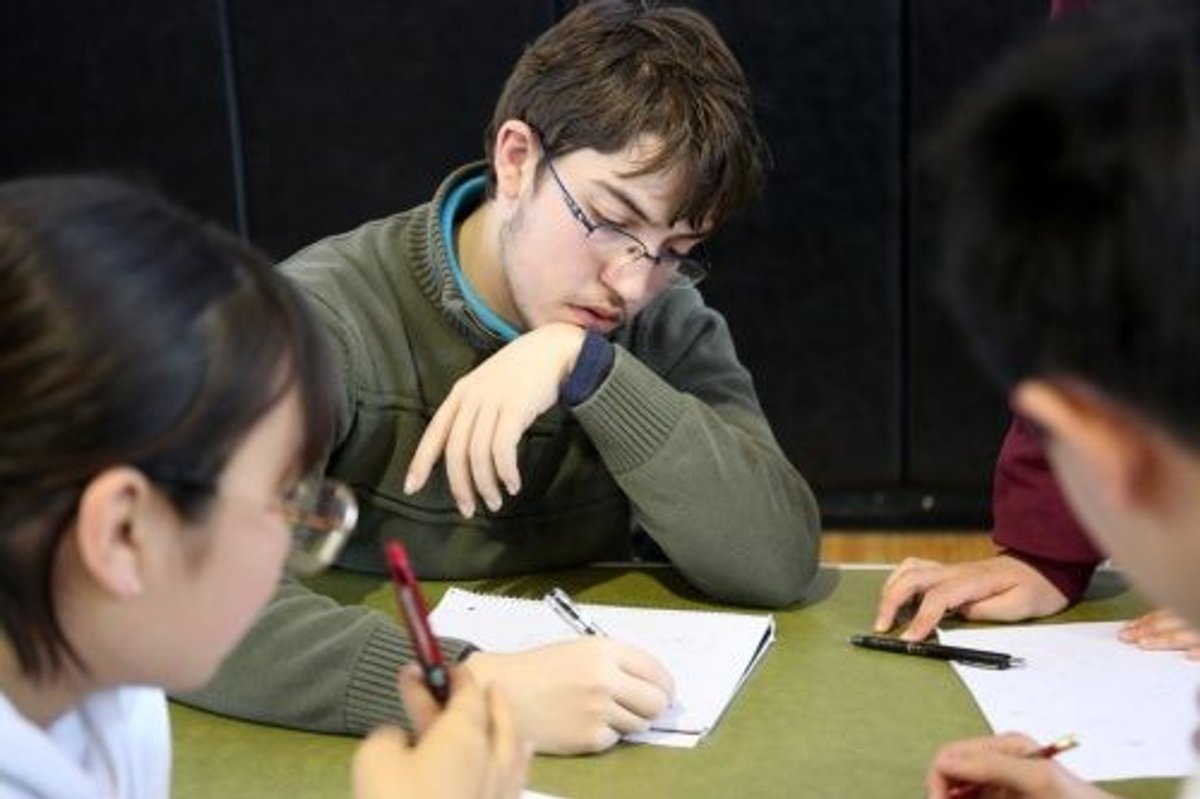ZAMA MIDDLE HIGH SCHOOL HOSTS 11 SCHOOLS DURING MATH FIELD DAY
COMMENT
SHARE

Advertisement
Story by Winifred Brown on 07/11/2019CAMP ZAMA, Japan (March 13, 2019) When Estrella Avila walked into the math field day at Zama Middle High School March 12, most of the participants were strangers from different schools. By the end, she was high-fiving and celebrating a win with them.
Avila, a seventh grader at ZMHS, was part of a team that won first place in a round of the competition that required them to apply mathematics skills to a series of problems under the pressure of time.
"I'm so excited!" Avila exclaimed when she learned of the win. "We won!"
More than 330 students from ZMHS and 11 international schools participated in the event, said Francisco Fonseca, an algebra and geometry teacher at ZMHS who helped organize the Kanto Plain Association of Secondary Schools Math Field Day.
The event began with an hour-long math test where students competed individually. Then, students broke into groups by grade level and competed to see which group could build a device out of five pieces of paper and tape that would go the farthest and stay in the air the longest when dropped near the top of the gym bleachers.
After lunch, students worked in groups again to see who could correctly answer a series of questions the fastest. Groups picked a "runner" who brought their answers up to a table to see if the group's answer was correct. If it was, they could move on to the next question, but if not, they had a total of three tries and then had to move on, without any points, to the next question. Groups received three points for getting the question right on the first try; two points on the second try; and one point on the third.
Organizers purposefully mixed up the teams with students from different schools so they would get to know one another, Fonseca said.
No team, for example, had two Zama students on it, and students said they had fun meeting new people and working with them to solve problems.
Baylee Dorsey, a junior at ZMHS, said this was her first year competing in the field day, and she intends to do it again next year.
"It was pretty fun," Dorsey said. "It's a pretty cool bonding opportunity with all the international schools. I think that was one of the best parts. The most challenging part was probably the first hour when we did the exam. I think it was because it was individual and you didn't have your group to help you. The last challenge was probably my favorite."
Royce Brown, a junior at ZMHS, said he enjoyed the whole event because "math is cool," and he liked the challenge of having to do everything under the pressure of time.
What added to the fun, however, was that many of the problems weren't like those students have to solve in the classroom, Brown said.
"Most of it was more fun math," Brown said. "It's a different type of math."
Lewis Walter, also a junior at ZMHS, said he especially enjoyed meeting students from other schools and getting to know them better during lunch.
"I think it was actually nice, especially for the social aspect," Walter said. "I liked the social interactions with the international students."
Caella Bolin, a freshman at ZMHS, said this was her first year competing in the field day, and while she found the test the most challenging part, it wasn't all serious testing.
"The most fun part was the building thing because we all got to experiment with it and we all got to know each other better with our ideas," Bolin said.
Fonseca said this was the fifth year ZMHS has hosted the event, and many of the schools have participated before.
Wallis Mayhew, a math teacher at the International School of the Sacred Heart in Tokyo, said she has chaperoned students at three of the events, and she always enjoys seeing students who like math have the spotlight on them.
"They're good in school, but (they don't get) the same kind of attention that athletes get, so it's a little bit of rah-rah,' and it's fun," Mayhew said. "I think it's a good chance for them to feel like what they can do is not just important later on, but fun too."
Joan Atkinson, science, technology, engineering and math coordinator for grades six through 12 for the Department of Defense Education Activity Pacific East District, visited when the day was in full swing.
Not only do math field days reinforce the curriculum, they also help build skills, Atkinson said.
"These are life skills that they can always take with them, solving problems and coming up with time-sensitive solutions," Atkinson said. "This is just real-world."
Join the Conversation
Advertisement
SHARE:



